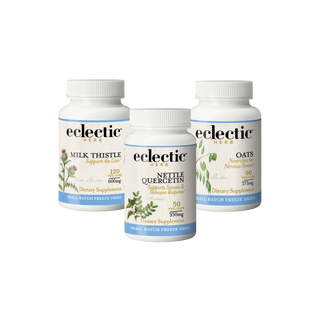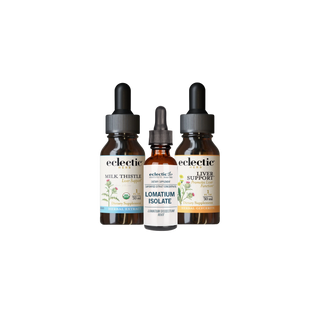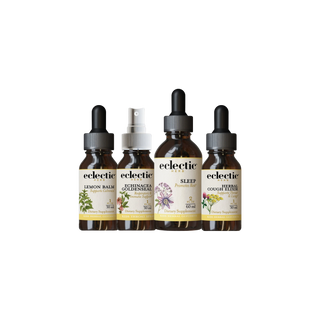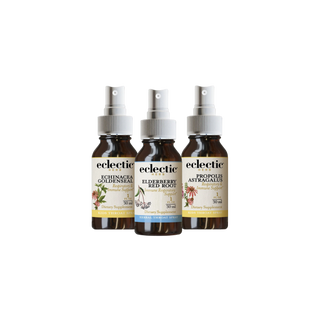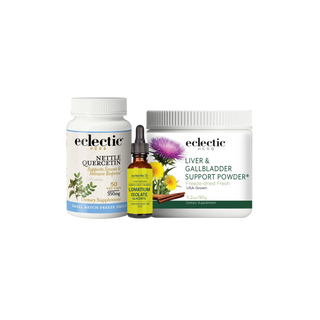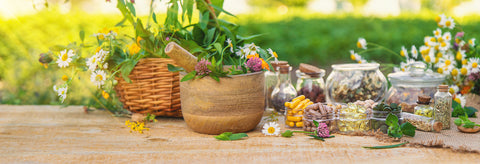
In today's fast-paced world, stress has become an almost inevitable part of life. While occasional stress is to be expected with our busy ways of life, chronic stress can have detrimental effects on our physical, mental, and emotional well-being. Thankfully, nature offers us a treasure trove of herbs that have been traditionally used to combat stress and promote relaxation. Here are the top five herbs renowned for their calming properties:
Ashwagandha: The Ancient Adaptogen
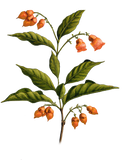
Origin: Often referred to as "Indian ginseng," ashwagandha hails from the rich healing tradition of Ayurveda.
Benefits: As an adaptogenic herb, ashwagandha assists the body in balancing its physiological systems. By doing so, it helps reduce stress and anxiety levels. Its rejuvenating properties have made it a staple in many holistic wellness practices for centuries.
Usage: Ashwagandha can be consumed in capsule form, as a tea, or even as a powder mixed with warm milk and honey.
Special Tip: Combining ashwagandha with other adaptogens, such as holy basil or rhodiola, can amplify its stress-relieving effects. However, always consult with a healthcare professional before mixing herbal supplements.
Lemon Balm: The Calming Elixir

Origin: A fragrant herb native to Europe, lemon balm has been cherished since ancient times for its soothing properties.
Benefits: Lemon balm works wonders in calming the mind and alleviating feelings of nervousness. It's also known to promote better sleep, which can be disrupted by stress.
Usage: Often combined with other calming herbs like chamomile, lemon balm can be enjoyed as a tea or taken as a supplement.
Interesting Fact: In medieval Europe, lemon balm was used in love potions and was believed to attract affection.
Passionflower: Nature's Tranquility
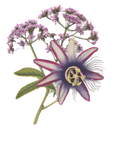
Origin: Native to the southeastern parts of the U.S., Central, and South America, passionflower has been widely adopted and valued in various traditional healing systems for its calming properties.
Benefits: Passionflower is believed to reduce symptoms of anxiety and promote a sense of tranquility. It's particularly beneficial for those who experience restlessness or disrupted sleep due to stress.
Usage: Passionflower can be consumed as a tea, tincture, or in capsule form.
Special Tip: If using passionflower as a tea, steeping it for longer (up to 10 minutes) can enhance its calming effects.
Rhodiola: The Resilience Booster
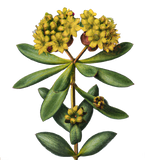
Origin: Thriving in cold regions like Siberia, rhodiola is another adaptogen that has garnered attention for its stress-relieving properties.
Benefits: Rhodiola aids the body in adapting to various stresses, whether they be physical, chemical, or environmental. By enhancing the body's resilience, rhodiola ensures that stress doesn't take a toll on our overall well-being.
Usage: Typically found in capsule or extract form, rhodiola can be taken as a daily supplement.
Interesting fact: The Russians believed that Rhodiola enhanced the endurance of their Olympic athletes and maintained the alertness of their soldiers during tests involving sleep deprivation. Astronauts stationed at the Russian Space Station found that Rhodiola reduced irritability caused by living together in close quarters.
Holy Basil (Tulsi): The Sacred Stress-Reliever
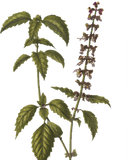
Origin: Revered in India as a sacred plant, holy basil, or tulsi, is deeply embedded in Ayurvedic practices.
Benefits: Another adaptogenic herb, holy basil helps in counteracting the effects of stress and balancing the body's energy. It's also believed to uplift the mood and fortify the immune system.
Usage: Tulsi leaves can be boiled to make a refreshing tea or taken as a supplement.
Special Tip: Keeping a tulsi plant at home is not only beneficial for its leaves but is also believed to purify the air and bring positive energy to the surroundings.
Conclusion: While these herbs offer a natural way to combat stress and promote relaxation, it's essential to remember that individual responses may vary. Always consult with a healthcare professional before incorporating any new herbs into your regimen. Taking a holistic approach, which includes a balanced diet, regular exercise, and mindfulness practices, can further enhance the benefits of these herbs and ensure a stress-free, serene life.

